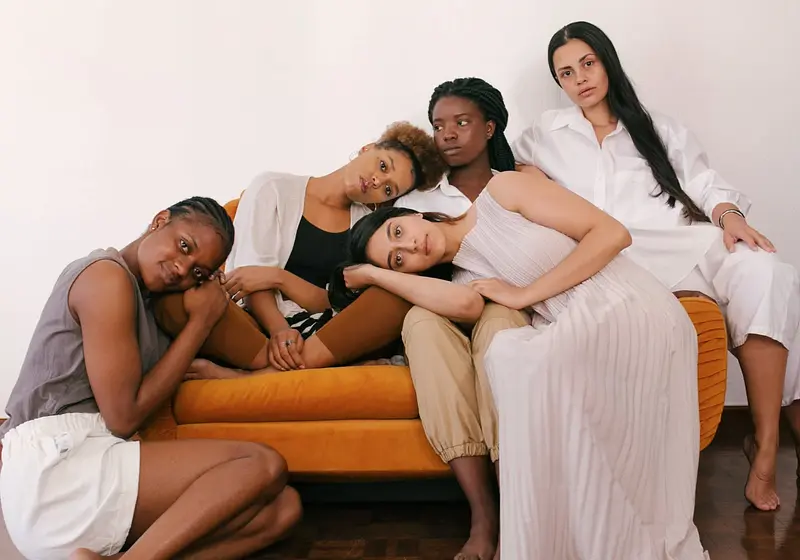Gender-based violence is a recurring issue that, seemingly, is struggling to find an end. No matter the country, time period, or environment, gender-based violence has always found a way to remain prevalent.
Before diving deeper into the global fight against this common topic, it is necessary to first discuss the statistics and facts involving women from all over the world.
According to the United Nations Women webpage, "it is estimated that 35 percent of women worldwide have experienced either physical and/or sexual intimate partner violence or sexual violence by a non-partner (not including sexual harassment) at some point in their lives". Additionally, from a multi-country study involving four countries from the Middle East and Northern Africa, "men who witnessed their fathers using violence against their mothers, and men who experienced some form of violence at home as children, were significantly more likely to report perpetrating intimate partner violence in their adult relationships". The example given was that "in Lebanon, the likelihood of perpetrating physical violence was more than three times higher among men who had witnessed their fathers beating their mothers during childhood than those who did not."
In November 2019 (the last time that the page was updated), it was recorded that "approximately 15 million adolescent girls (aged 15 to 19) worldwide have experienced forced [censored] (forced sexual [censored] or other sexual acts) at some point in their life". In the immense majority of countries, "adolescent girls are most at risk of forced [censored] by a current/former husband, partner or boyfriend. Based on data from 30 countries, only one percent ever sought professional help".
Gender-based violence is not only limited to domestic violence or actions carried out (physically) in the household. It ranges from street-based violence to cyber-bullying/harassment to violence in the workplace.
Let us slide into your dms 🥰
Get notified of top trending articles like this one every week! (we won't spam you)Global Protests
After experiencing hundreds and hundreds of years of constant indifference and maltreatment, women from all over the world have congregated to protest, both physically and virtually, against gender-based violence and violence against women (VAW). Large organizations, such as UN Women, have also participated in the fight by hosting annual campaigns to help spread awareness; some include “Orange the World: Generation Equality Stands against Rape!”, #HearMeToo, and the #MeToo campaigns. Here are some countries that have actively engaged in trying to prevent gender-based violence:

Take the Quiz: Which BLACKPINK member are you?
Find out which BLACKPINK member you resemble the most!
Mexico
On March 9, 2020, right before the Covid-19 pandemic officially shook the world, millions of women from all over Mexico joined in a day-long strike to call attention to the rising levels of gender-based violence. A month before, the country was shocked by the sudden news of the killing of two females, both a few days apart from each other.
The deaths of twenty-five-year-old Ingrid Escamilla and seven-year-old Fatima Cecilia Aldrighett Anton triggered national outrage, and in turn, produced thousands of protests. After several protests and cries for governmental change failed, activists called for nationwide demonstrations on March 8, International Women's' Day, and the complete disappearance of women on March 9.
Not only did women physically disappear on March 9, but their traces had also vanished from every crevice of Mexico. In numerous newspapers, purple-colored pages were featured in order to express solidarity with the protests. Empty spaces were also present in certain publications to emphasize the spot where female writers would've had their articles printed.
Gender-based violence has been a huge issue in Mexico for years on end. In Mexico, an estimated ten women are killed every day. Additionally, according to Reuters, two-thirds of women over the age of fifteen have experienced violence, most from their romantic partners. Between the years 2015 and 2019, Mexico's rate of femicide — the killing of women — increased by approximately 145%, from about four hundred cases to more than one thousand.
Nigeria
Ever since the Nigerian government declared an official lockdown throughout the state, there has been an increasing number of Sexual and Gender-Based Violence (SGBV). Due to the confinement conditions of the lockdown, people of all backgrounds have interpreted the circumstances to be an opportunity. As a result of the upsurge in gender-based violence, different parts of the Nigerian State launched actions to help combat said violence on June 10th.
The government helped the movement by initiating a legislation titled, “A Bill for an Act to Prohibit the Stigmatisation of Victims of Rape and Insurgency in order to encourage victims of rape to testify in court and victims of insurgency to be reintegrated into the community of his or her choice” to protect the victims from disapproval and stigma. In addition, after speaking with the Minister of Women Affairs, Pauline Tallen on Wednesday, the cabinet decided to subject all state governments to adopt and operationalize the Violence against Persons Prohibition Act (VAPPA), 2015. VAPPA not only identifies and defines what rape and consent are, but it is the only act that acknowledges marital rape. The Nigerian government has worked very hard to push for legislation that works to legally protect victims from any harm done.
South Africa
On June 30, 2020, adolescents from all over Cape Town, South Africa gathered at Parliament to protest against gender-based violence. They stood at the gates, dressed in black, holding placards and pictures of victims of GBV, and shouted for the government to take action. During periods of silence, the protestors laid on the ground, some with posters in the air.
On August 1, 2018, individuals spread the #TotalShutDown hashtag all across social media, asking people to support the cause against gender-based violence and spread awareness. The "Total Shutdown" march took place in eight provinces as well as in other African countries.
According to The Guardian, at least 137 sexual offences are committed each day in South Africa. Furthermore, according to a report by the Africa Check, "the global figure for femicide in 2015 was 2.4 per 100,000 women, while South Africa's rate was four times higher at 9.6 per 100,000 women", meaning that South Africa's femicide rate is five times more than the global rate.
South Korea
On May 17, 2016, a 34-year-old man killed a 23-year-old woman in a brutal knife attack in a building nearby the Gangnam metro station. After interrogating the man, he declared that he had no relations with the woman whatsoever and that he killed her because he felt “ignored and belittled by women”. Following this act of gender-based violence, people placed hundreds of post-it notes and left chrysanthemum flowers along a wall outside Gangnam station.
Additionally, people have also taken to social media to criticize violence against women. Some posts include the users' personal stories of experiencing sexism and gender-based discrimination; embedded in the story is the hashtag, "I survived".
Contrary to the expectations of these protestors, the police came out and said that they did not believe the crime to be gender-based. They claimed that the presumed murderer was mentally unstable and that he had had a past in the mental health hospital. In a press briefing, they stated, "here is a need to distinguish between hate crimes and crimes driven by mental illness.
The latest case falls in the latter category". Outrage quickly followed the briefing with protestors accusing the police of wanting to hide the true motive for the crime in a country ridden with gender inequality. In response to this, masked men have appeared in front of the memorial with signs saying that "Not all men are potential murderers” and “The crime was not misogynistic”.
Gender equality is a constantly talked-about topic in South Korea. In 2015, the country was ranked 115th out of 145 countries in terms of gender equality by the World Economic Forum. The wage gap in South Korea also remains noteworthy.
On average, a South Korean man makes 37% more than a woman who is working the same occupation. There have been ameliorations in women's rights, such as the ability to file for divorce, but the country is still struggling to decrease gender-based discrimination.
On June 19, 2015, the United Nations General Assembly declared June 19th to be the designated day to celebrate the International Day for the Elimination of Sexual Violence in Conflict. Although several of these countries are still wrestling with gender-based discrimination and gender-based violence, these protests have helped to both spread awareness and to ask for a change in the stagnant patriarchal systems. For anyone affected by abuse and needing support, call 1-800-799-7233, or if you're unable to speak safely, log onto thehotline.org or text LOVEIS to 1-866-331-9474. You are not alone.









%20(2)%20estee.jpg)






